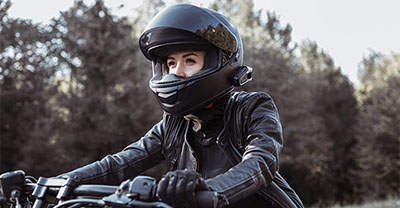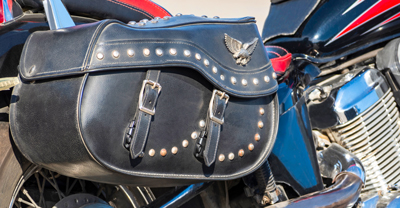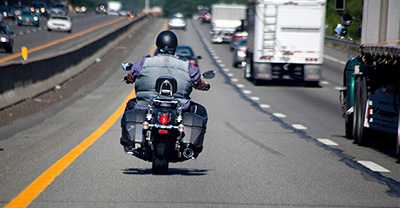Top tips every first-time motorcycle owner needs to know


0 min. read
That new bike feeling is something special—the excitement, the possibilities, and maybe a few nerves, too. If you’ve just earned your motorcycle license or taken your first steps as a new owner, we’re here to help with must-know tips to get you started right.
Must-have protective gear for new riders
Protecting yourself starts before you even turn the key—by wearing protective gear every time you ride. Quality gear can help keep you comfortable and safe in the event of an accident.
Include these items on your riding gear checklist:
DOT-approved helmet that fits snugly without pressure points
Armored jacket with weather-appropriate ventilation
Over-the-ankle boots with good grip and support
Riding gloves with reinforced palms and knuckle guards
Riding pants with abrasion resistance or durable denim
Reflective elements for better visibility

Building your riding skills
Even after getting your license, there's always more to learn for a safer and more enjoyable experience on the road.
Practice makes progress
While stationary, get comfortable with your bike’s controls. Reference the owner’s manual if necessary to clear up any uncertainty. Then, start building your confidence in a safe environment like an empty parking lot with these fundamental skills:
Gradual acceleration: Helps you maintain control and stability at low speeds
Slow-speed maneuvers: Important for safely navigating tight spaces and stop-and-go traffic
Cornering skills: Gives greater control on tight turns
Emergency braking techniques: Enhances quick and controlled reactions in dangerous situations
Scanning for hazards: Develops situational awareness on the road
Avoiding obstacles: Prepares you to control your bike if you must swerve
Maintaining proper lane position: Helps ensure visibility during rides
Advanced motorcycle training opportunities
Once you have a handle on the basics, consider these training options to further enhance your motorcycle skills:
Take a Motorcycle Safety Foundation (MSF) advanced rider course
Join group riding clinics focused on beginner skills
Find a mentor through local riding groups
Participate in supervised practice sessions
Watch professional riding technique videos
Weather and riding conditions
Riding in different weather conditions requires an added layer of skill and preparation. Consider limiting your rides to days with fair weather for your first couple of months. And when in doubt, wait out any poor weather.
Keep these weather-related riding tips in mind:
Always check the forecast before heading out and be prepared with the proper gear to keep you safe and comfortable
Learn how temperature affects your tire grip. On long rides, this could change throughout the day
Be conscious of wind conditions, especially on raised highways and at high speeds
Watch for slick spots during the first few minutes of rain
Remember that visibility during rain or fog is about seeing and being seen
Don’t hard break on black ice
Essential motorcycle maintenance knowledge
Understanding and performing basic maintenance can help keep you safe and extend the life of your bike. Always consult your owner’s manual or a professional mechanic for more advanced maintenance needs. Start with these simple checks you can do yourself as part of your pre-ride inspection:
Tire pressure and tread condition: Before every ride, examine your tires for wear and proper inflation
Chain tension and lubrication (if applicable): Poorly maintained chains can fail, leaving you stranded and possibly injured.
Fluid levels: Regularly check oil, coolant, and brake fluid to help ensure optimal performance.
Brake pad wear and lever feel: Worn brake pads may make the brakes feel “squishy” and hurt your ability to stop.
Light and signal operation: Test all lights and signals so you’re driving legally and properly communicating with other drivers.
Battery condition and connections: Inspect the battery for secure connections and corrosion to maintain reliable power.
The mental game of riding
Safe riding isn't just about technique; it's a mental game. Developing the right mindset is crucial for long-term safety and enjoyment.
Recognize that riding is a continuous learning process. There's always something new to learn and improve upon.
Understand that motorcycles are powerful machines that require respect. Always be aware of your surroundings and the potential hazards on the road.
Avoid distractions and focus on the task at hand—riding safely.
Don't push yourself beyond your comfort zone or your skill level.
Riding a motorcycle should be an enjoyable experience. Remember to savor the freedom, the scenery, and the thrill of the open road!

The general information in this blog is for informational or entertainment purposes only. View our blog disclaimer.










